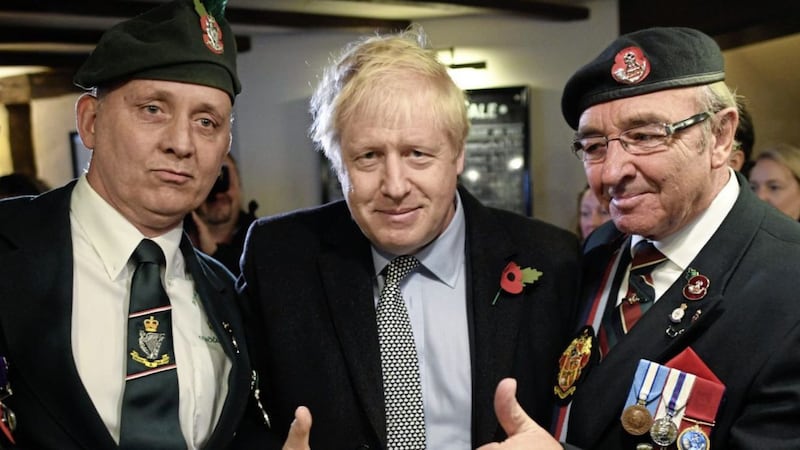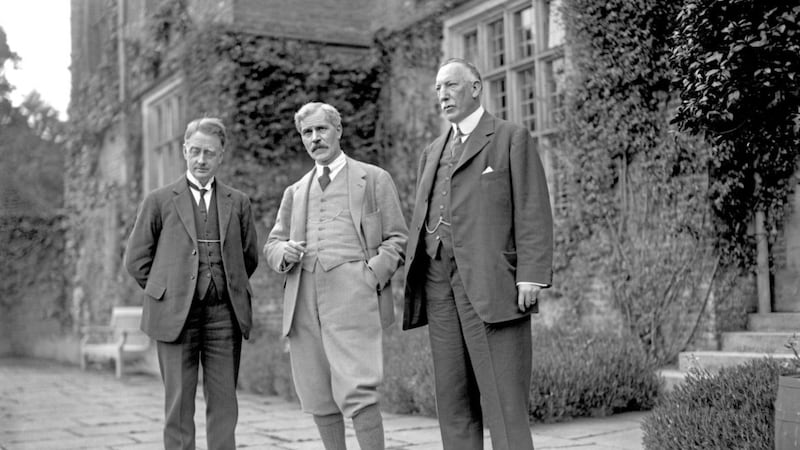More than fifty years ago General de Gaulle complained that Britain doesn’t keep any promise, doesn’t honour any international treaty, or if it does, only for as long as parliament believes it’s in England’s interest; note England’s, not Britain’s and least of all the UK’s, for that includes this godforsaken place.
Of course de Gaulle was correct. That’s why England is known as Perfidious Albion – because the doctrine of parliamentary sovereignty makes Britain a fundamentally untrustworthy partner in any treaty. Along with the doctrine goes the unsavoury political mentality it encourages.
We got a couple of examples of it recently. First, there was the serially untrustworthy prime minister, infamous for his somersaults, lies and insouciance about any inconvenient policy detail, spoofing about no summary declarations needed for goods going west-east after Brexit, but they are. Obviously he hasn’t a clue about the details of what he’s negotiated. Why should he have? Equally obviously he has no intention of abiding by anything agreed with the EU about the north’s position regarding customs. He’ll change it at a whim and, if he gets a majority on December 12, parliament will back him. It all points to endless stand-offs with the EU.
Next we have Defence Secretary Ben Wallace announcing the latest wheeze to placate England’s Colonel Blimps, some of whom are personified by members of the Defence Select Committee where you’ll find some of the stupidest Conservative MPs imaginable. Still, there’s no need to get worked up about the plan to amnesty British soldiers, for that’s what it is. It will come to nothing, but it’s the unsavoury, arrogant mentality that lies behind the proposal that’s offensive and earns Britain the deserved reputation as untrustworthy, devious, unreliable and dishonest.
Of course it’s an election ploy which has enraged unionists and nationalists, but Wallace doesn’t care. The Conservatives have no votes here. Tánaiste Simon Coveney issued a plaintive statement objecting that the plan disregarded the Stormont House agreement, thereby setting aside a deal negotiated with the Irish government as well as the parties here. Well, as de Gaulle said, the British couldn’t care less about international agreements.
Wallace spouted some stultifying guff on BBC radio and got away with it because neither the interviewer nor listeners in Britain had a clue. He talked, as Johnson did later, about ‘vexatious’ prosecutions even though they are the result of police inquiries and DPP recommendations. He talked about the third or fourth inquest in some cases even though it’s the first in most cases.
What was most ‘concerning’ to use the Irish government favourite misuse of the word (concerning what?) was the plan to amend the Human Rights Act (HRA). Now that is very dangerous. First, the tiny number of cases brought against former soldiers are not prosecutions under the Human Rights Act but under the common law. Amending the Human Rights Act will therefore not stop prosecutions for murder. Secondly, unless Britain derogates from the European Convention (ECHR), they will still be obliged under Section 2 to investigate state killings.
However, although Wallace was talking through a hole in his hat and needless to say Johnson was in full obfuscating misleading mode, the really worrying and potentially dangerous aspect was that they are prepared to mess around with the HRA and ECHR which are an integral part of the Good Friday Agreement, referenced repeatedly in it, so that nothing any assembly may do or propose can ‘infringe the ECHR’. The GFA required the ECHR to be incorporated into the north’s law.
These aspects of the British proposals are what the Irish government should have been ‘concerned’ about, not casting aside the Stormont House agreement which is as dead as a door nail.
‘Concerned’ is not enough. Here is a classic example of Perfidious Albion airily planning to disregard unilaterally an international treaty for electoral gain. Dublin needs to step up to the mark.









